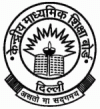
Conduct of Class-IX March 2010
Examination under
Summative Assessment-II
The Central Board of Secondary Education has introduced Examination Reforms
and Continuous & Comprehensive Evaluation in its affiliated schools from this
academic year. The detailed scheme has already been intimated to all Heads of
schools vide our Circular Nos. 39,40,42,50,51,52,54,61,62 and 63 (2009).
The scheme is in operation in all CBSE affiliated schools in Class IX w.e.f.
Oct. 2009 i.e. the second term. Under this two Formative Assessments and one
Summative Assessment is to be done. The schools have done / are already doing
Formative Assessments during the second term, and Summative Assessment for this
term is to be conducted now.
Under this end term Summative Assessment-II, the students will be tested
internally based on the following criteria:-
a) Syllabus and Examination Question Paper Design in different subjects for
Class IX Summative Assessment II will be the same as circulated by the Board
earlier. The same is also available on CBSE website www.cbse.nic.in under CCE
corner.
b) The Summative assessment will be in the form of a pen-paper test conducted
by the schools themselves.
c) In order to ensure standardization and to ensure uniformity, the Question
Paper Banks in different subjects are being sent by the Board to schools in
February 2010.
d) In order to cater to the difference in the pace at which students respond
to questions, schools will give flexible timing to students for attempting the
question papers. This may vary from 3 to 3½ hours.
e) Evaluation of answer scripts will be done by the school teachers
themselves on the basis of the Marking Scheme provided by the Board.
f) There will be random verification of the assessment procedures carried out
by schools by the Board officials/nominees appointed by the Board.
It has been decided to provide question paper banks for English
Communicative, English Language & Literature, Hindi-A, Hindi-B, Mathematics,
Science, Social Science, Communicative Sanskrit. In respect of other
subjects/languages, the schools will administer their own question paper based
on the sample question paper available on the CBSE’s website, and intimated
earlier. [..]